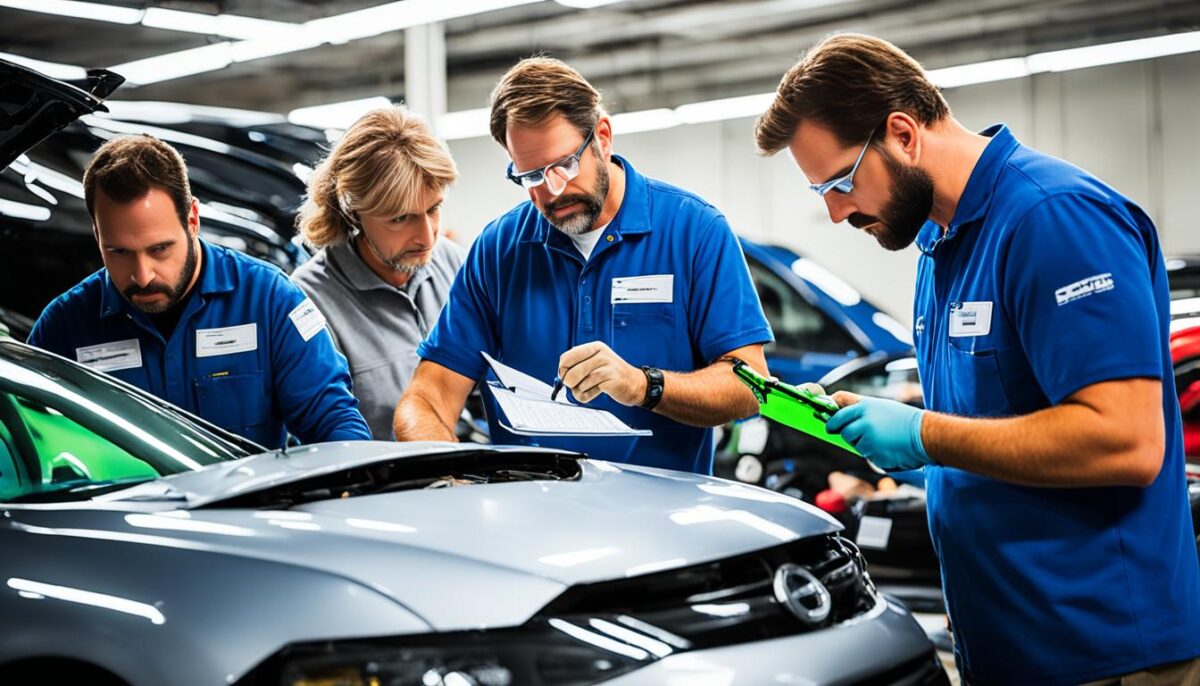Attending a car auction can be an exciting and potentially lucrative experience, but it requires proper preparation and understanding of the process. In this comprehensive guide, we will walk you through the essential requirements, documents, and strategies needed to successfully participate in a car auction and find your dream vehicle.
Whether you’re a first-time buyer or an experienced bidder, our goal is to equip you with the knowledge and confidence to navigate the car auction landscape. From researching auctions and understanding the rules to inspecting potential purchases and finalizing the sale, we’ll cover all the key steps to ensure you have a smooth and successful car auction experience.
So, let’s dive in and explore what you need to know to make the most of your car auction journey. By the end of this article, you’ll be well-equipped to confidently bid, purchase, and drive away with the perfect car for your needs and budget.
Preparing for a Car Auction: Essential Requirements
Attending a car auction can be an exciting and potentially rewarding experience, but it’s essential to prepare thoroughly. By researching auctions and the vehicles being offered, as well as understanding the auction rules and procedures, you can navigate the process with confidence and make informed bidding decisions.
Researching Auctions and Vehicles
The first step in preparing for a car auction is to research reputable auctions in your area. Look for events hosted by well-established auction houses or dealerships with a proven track record. Review the auction’s website or catalog to get a sense of the types of vehicles that will be available and their estimated prices.
Once you’ve identified an auction of interest, spend time researching the specific vehicles that catch your eye. Check online resources, such as vehicle history reports and industry publications, to gather information about the cars, trucks, or SUVs you’re considering. Understanding the make, model, mileage, and overall condition of the vehicles can help you determine fair market values and set your bidding strategy accordingly.
Understanding Auction Rules and Procedures
- Familiarize yourself with the auction’s registration process, including any required documentation or deposits.
- Review the auction’s terms and conditions, which typically outline the buyer’s premium, payment methods, and post-auction responsibilities.
- Understand the bidding process, including the use of hand signals or bidding cards, and any increments or minimum bids.
- Be aware of any inspection opportunities or limitations, as well as the auction’s policies regarding vehicle condition disclosures and warranties.
By preparing for a car auction in this comprehensive manner, you’ll be better equipped to navigate the event and make informed purchasing decisions. Remember, thorough research and understanding of the auction process are key to a successful and rewarding car-buying experience.

| Auction Type | Typical Vehicles Offered | Buyer’s Premium |
|---|---|---|
| Dealer-only Auction | Used vehicles from dealership inventory | 5-10% |
| Public Auction | Variety of used vehicles, including seized or repossessed cars | 10-15% |
| Specialty Auction | High-end, collectible, or unique vehicles | 15-20% |
“Preparation is the key to success at a car auction. Researching the auctions and vehicles, as well as understanding the rules, can give you a significant advantage in making informed bidding decisions.”
Need to Go Car Auction: Documents and Finances
Participating in a car auction requires having the necessary documents and finances in order. As prospective buyers, we’ll need to ensure we have the proper identification, registration, and proof of funds paperwork before stepping into the auction house. Additionally, exploring different financing options, from cash to loans, can help us secure our auction purchase with confidence.
Essential Documents for Car Auctions
To participate in a car auction, you’ll typically need to provide the following documents:
- Valid driver’s license or government-issued ID
- Proof of insurance (if you plan to drive the vehicle off the lot)
- Vehicle registration (if you’re planning to bid on a specific vehicle)
- Cashier’s check or bank-issued letter of credit for the required deposit amount
These documents needed for car auction are crucial for verifying your identity, ensuring compliance with auction rules, and demonstrating your ability to complete the transaction should you be the winning bidder.
Financing Options for Car Auctions
When it comes to financing for car auction purchases, buyers typically have several options to consider:
- Cash: Bringing sufficient cash or a cashier’s check to cover the full purchase price is a straightforward and immediate way to secure your winning bid.
- Pre-approved Loan: Obtaining a pre-approved loan from a bank, credit union, or online lender can provide the necessary funds to bid with confidence.
- In-House Financing: Some auction houses may offer their own financing solutions, allowing you to secure the vehicle on the spot.
Carefully evaluating your financial situation and the available financing for car auction options can help you make an informed decision and ensure a smooth transaction at the auction.
| Financing Option | Advantages | Disadvantages |
|---|---|---|
| Cash | – Immediate purchase – No interest or loan fees |
– Requires having the full amount upfront |
| Pre-approved Loan | – Flexibility in payment terms – May offer better interest rates |
– Application and approval process required |
| In-House Financing | – Convenient on-site financing – Potential for quick approvals |
– May have higher interest rates or fees |
By carefully considering the documents needed for car auction and exploring the various financing for car auction options, you can position yourself for a successful and well-informed experience at the car auction.
“Preparation is the key to success in any car auction. Make sure you have all the necessary documents and financing in place before you even step foot in the auction house.”
Inspection and Bidding Strategies
Purchasing a vehicle at a car auction can be an exhilarating experience, but it’s essential to approach the process with a strategic mindset. One of the most critical steps is thoroughly inspecting the potential purchases before placing any bids.
Thoroughly Inspecting Potential Purchases
When inspecting cars at auction, it’s crucial to go beyond the surface-level appearance and delve into the details. Here are some tips to help you conduct a comprehensive inspection:
- Carefully examine the exterior for any visible damage, dents, or signs of previous accidents.
- Check the interior for any tears, stains, or signs of wear and tear.
- Thoroughly inspect the engine and mechanical components to identify any potential issues or concerns.
- Test all the electrical systems, including lights, radio, and other accessories, to ensure they are functioning properly.
- Request a vehicle history report to uncover any hidden issues or past problems that could impact the car’s value and reliability.
By taking the time to thoroughly inspect the vehicles, you can make informed decisions and avoid costly surprises down the line.
Effective Bidding Strategies for Car Auctions
Developing effective bidding strategies is crucial when participating in car auctions. Here are some tips to help you secure the best deals:
- Establish a realistic budget and stick to it. Avoid the temptation to overspend, as emotions can run high during the excitement of the auction.
- Research the fair market value of the vehicles you’re interested in and set your maximum bid accordingly.
- Consider bidding strategies like incremental bidding or proxy bidding to help you stay within your budget.
- Be patient and wait for the right moment to place your bid. Don’t get caught up in the frenzy and make impulsive decisions.
- Stay informed about the auction’s rules and procedures to ensure you’re bidding correctly and avoiding any missteps.
By combining thorough inspections and strategic bidding, you can increase your chances of finding the perfect vehicle at the best possible price.

“Patience and preparation are the keys to success when bidding at a car auction. Take the time to thoroughly inspect the vehicles and develop a sound strategy, and you’ll be well on your way to driving home your dream car.”
Post-Auction Steps: Finalizing the Purchase
If you’ve emerged victorious from the car auction, the excitement doesn’t end there. We’ll guide you through the final steps to complete the purchase and transition smoothly into vehicle ownership.
First and foremost, you’ll need to pay the necessary fees to the auction house. This typically includes the winning bid amount, along with any applicable taxes, documentation fees, and other charges. Be prepared to handle these payments promptly to finalize the transaction.
Next, you’ll need to work with the auction staff to transfer the vehicle’s title into your name. This process may involve paperwork and documentation, so be sure to have all the required information on hand. Once the title transfer is complete, you’ll officially become the new owner of the vehicle.



